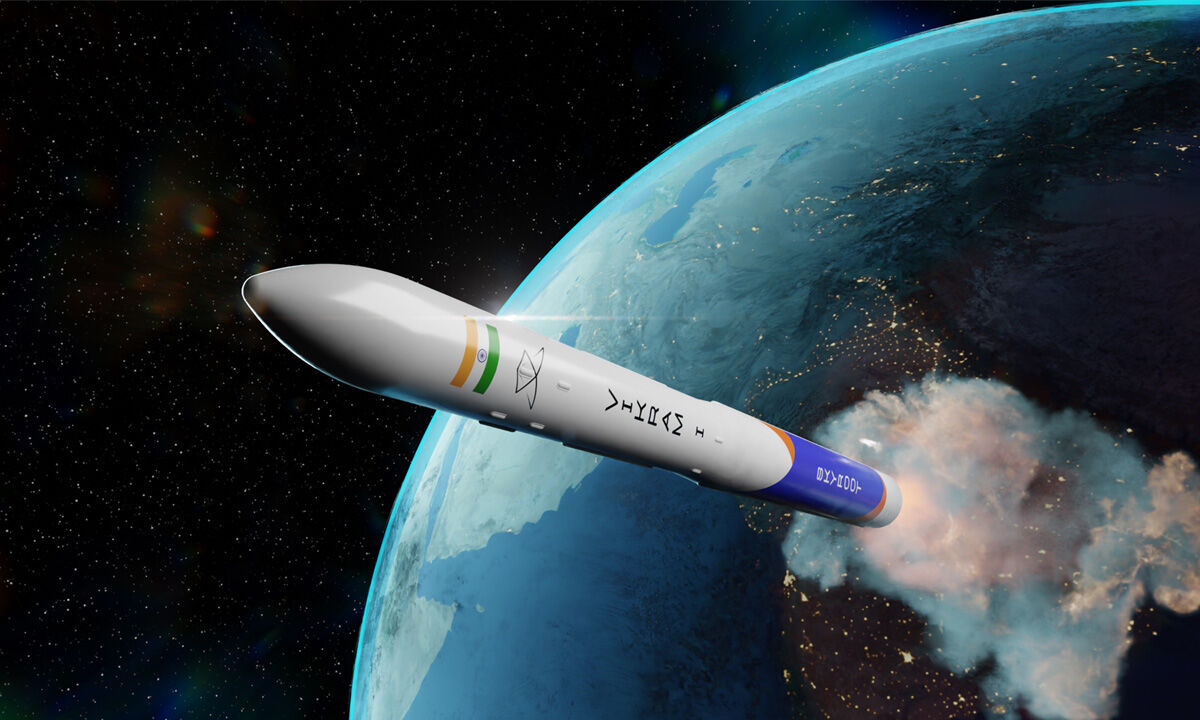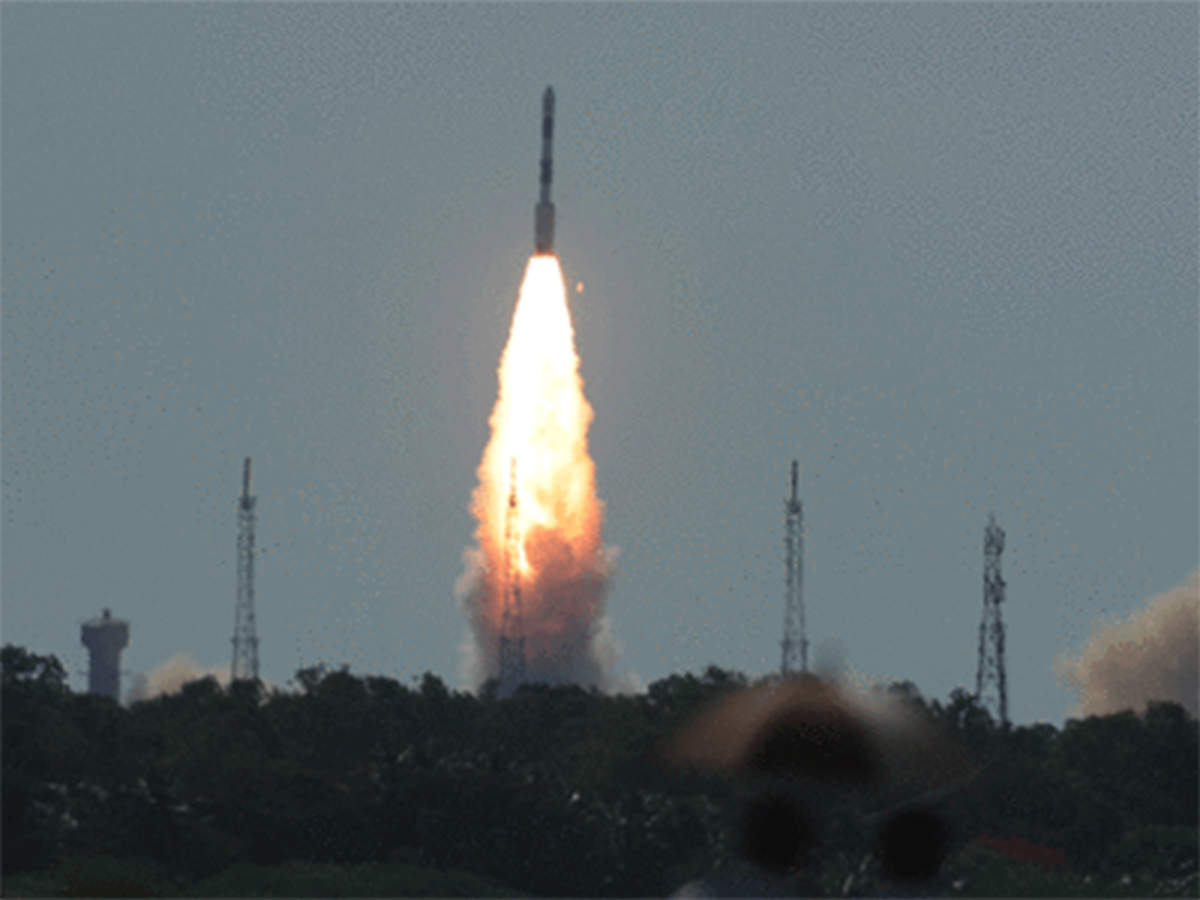In 2023, India’s Skyroot in talks with French firm to launch nanosatellites

India’s Skyroot in talks with French firm to launch nanosatellites
French space sector firm Promethee has expressed interest in utilizing the Vikram-series of launch vehicles developed by the Indian start-up Skyroot Aerospace to deploy its nanosatellites into orbit. During Prime Minister Narendra Modi‘s official visit to France, Pawan Kumar Chandana, co-founder of Skyroot, held discussions with Promethee President Olivier Piepsz to explore potential collaboration in this area. The details of their discussions and the extent of their potential partnership have not been specified.
In a joint statement released by Skyroot Aerospace and Promethee, it has been announced that Pawan Kumar Chandana, co-founder of Skyroot Aerospace, and Olivier Piepsz, President of Promethee, have agreed to collaborate on a study regarding the integration of Skyroot’s Vikram launcher into the deployment process of the Japetus earth observation constellation.

The Japetus constellation is an earth observation system operated by Promethee. As part of their collaboration, both companies will explore the feasibility and technical aspects of incorporating Skyroot’s Vikram launcher into the deployment operations of Japetus. This integration study signifies the shared interest and intent of Skyroot Aerospace and Promethee to leverage their respective technologies and expertise to enhance the effectiveness and efficiency of the Japetus constellation.
By integrating the Vikram launcher, Promethee aims to leverage the launch capabilities of Skyroot Aerospace to deploy its earth observation nanosatellites into orbit more effectively and reliably. The study will likely involve technical assessments, simulations, and evaluations to ensure the compatibility and successful integration of the Vikram launcher with the Japetus deployment process.

This collaboration highlights the synergy between the two companies and their commitment to advancing the field of earth observation through technological partnerships and mutual exploration of new possibilities.
Promethee is a French new-space operator focused on nanosatellite constellations for earth observation. The company was founded in January 2020 by Olivier Piepsz and Giao-Minh Nguyen, bringing together experts in the space, digital, and services sectors. The collaboration between Promethee and Skyroot Aerospace indicates their shared interest in exploring potential synergies and leveraging the capabilities of the Vikram launcher for the deployment of Promethee’s earth observation constellation, Japetus.

Skyroot Aerospace, a Hyderabad-based company, made a significant mark in the space industry by successfully launching its Vikram-S rocket in November of the previous year. This achievement was notable as it marked the first successful launch of a privately built space rocket in India, accomplished within just four years of the company’s establishment.
The founding members of Skyroot Aerospace consist of young scientists and engineers who previously worked at the Indian Space Research Organisation (ISRO). They have been focused on developing three different variants of the Vikram series of rockets.
These variants are designed to facilitate the launch of small satellites into orbit. While specific details regarding the three variants have not been provided, it can be inferred that Skyroot Aerospace is dedicated to expanding its launch capabilities and catering to the growing demand for small satellite launches.
Skyroot Aerospace is developing three variants of the Vikram series rockets, each with varying payload capacities and target orbits:
1. Vikram-I: This variant of the Vikram rocket is designed to carry a payload of up to 480 kilograms to Low Earth Orbit (LEO). The payload capacity of Vikram-I makes it suitable for launching smaller satellites into orbit.
2. Vikram-II: The Vikram-II variant is being designed to lift off with a payload capacity of approximately 595 kilograms. This increased capacity enables the rocket to carry slightly larger payloads to LEO compared to Vikram-I.
3. Vikram-III: The third variant, Vikram-III, is intended for launching payloads to a specific orbit known as a 500 km Low Inclination Orbit. It is designed to accommodate payloads weighing up to 815 kilograms. This variant allows for the delivery of larger payloads to the specified orbit.
Skyroot Aerospace’s development of three variants of the Vikram rocket reflects the company’s commitment to offering flexible launch options that cater to different payload sizes and target orbits. This approach is driven by the diverse needs of the small satellite market and the demand for efficient and tailored launch services.
By designing the Vikram-I, Vikram-II, and Vikram-III rockets with varying payload capacities, Skyroot Aerospace can accommodate a range of payloads. The Vikram-I variant, with a payload capacity of up to 480 kilograms, is well-suited for smaller satellites and missions requiring a lighter payload. This variant provides a cost-effective and efficient launch option for customers with compact satellites.
For payloads that are slightly larger, the Vikram-II variant offers increased capacity, capable of lifting off with approximately 595 kilograms. This variant expands the capabilities of the Vikram series, allowing for the launch of slightly larger satellites or multiple smaller satellites on a single mission.
The Vikram-III variant targets a specific orbit known as the 500 km Low Inclination Orbit. With a payload capacity of up to 815 kilograms, it is designed to accommodate larger payloads and deliver them to the intended orbit efficiently. This variant is particularly relevant for missions requiring payloads to be deployed in the specified orbit.
By providing these three variants, Skyroot Aerospace aims to address the diverse requirements of customers in the small satellite market. This flexibility allows satellite developers, research institutions, and commercial entities to choose the most suitable Vikram variant based on their specific payload size and target orbit.
The tailored launch services offered by Skyroot Aerospace not only enable efficient deployment of satellites but also contribute to cost optimization and mission success. This approach aligns with the growing demand for dedicated and customized launch solutions in the small satellite industry.




